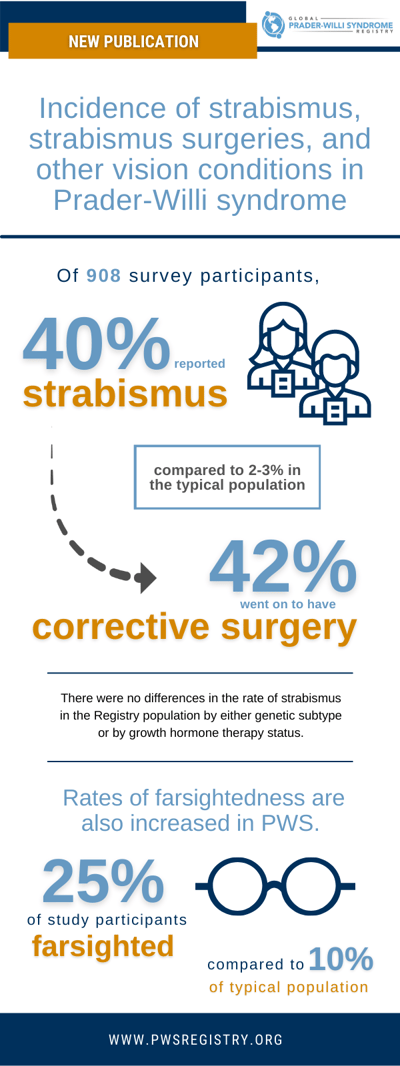 Thanks to the participation of so many in our community, our team was able to share the largest study ever on eye problems in PWS, using data from the Global PWS Registry. The paper “Incidence of strabismus, strabismus surgeries, and other vision conditions in Prader-Willi syndrome: data from the Global Prader-Willi Syndrome Registry” was published in the journal PLOS One. The full publication is available here.
Thanks to the participation of so many in our community, our team was able to share the largest study ever on eye problems in PWS, using data from the Global PWS Registry. The paper “Incidence of strabismus, strabismus surgeries, and other vision conditions in Prader-Willi syndrome: data from the Global Prader-Willi Syndrome Registry” was published in the journal PLOS One. The full publication is available here.
Issues with vision can be very prevalent among people with PWS, however, there has not been a great deal of data published to date. The new study analyzed the responses of 908 Registry participants who completed to the Vision survey in the Global PWS Registry.
We found 40% of registry participants have strabismus (deviated eye, cross-eyed). This is much higher than the typical population (2-3%). Moreover, 42% of Registry participants who were diagnosed with strabismus went on to have strabismus surgery. That rate of surgery is much higher than the typical population, where only around 5% of people with strabismus go on for surgery. However, there were no differences in rate of strabismus in the Registry population by either genetic subtype or by growth hormone therapy status.
We also found that the rates of farsightedness in PWS were higher compared to the typical population (25% vs <10%) as well as “lazy eye” (16% in PWS vs ~2% in the typical population).
Overall, this study provides important information on the scope and frequency of vision problems in PWS. We would like to extend a special thank you to the more than 900 families who contributed to this study – your efforts help our community learn what vision problems we should be watching out for as early as possible, as some of these issues may benefit from early intervention!







